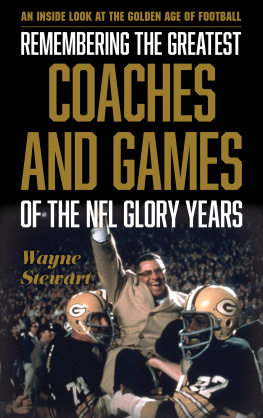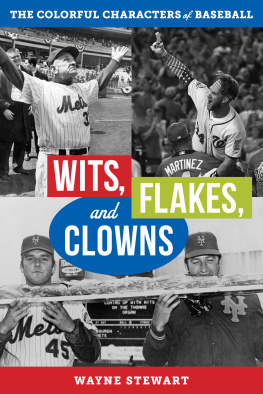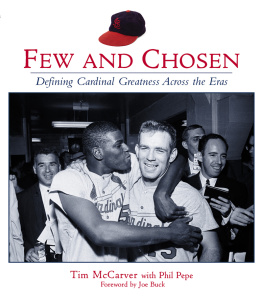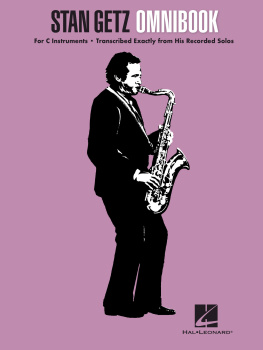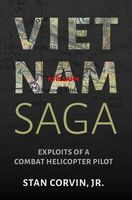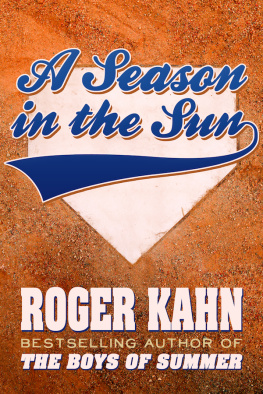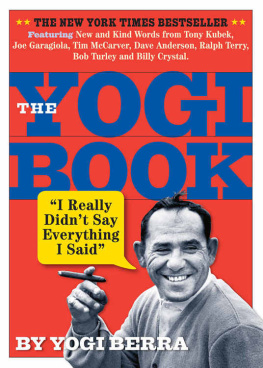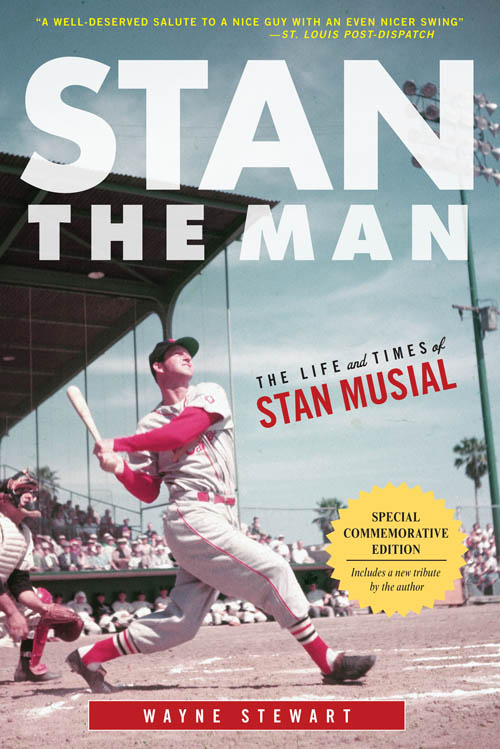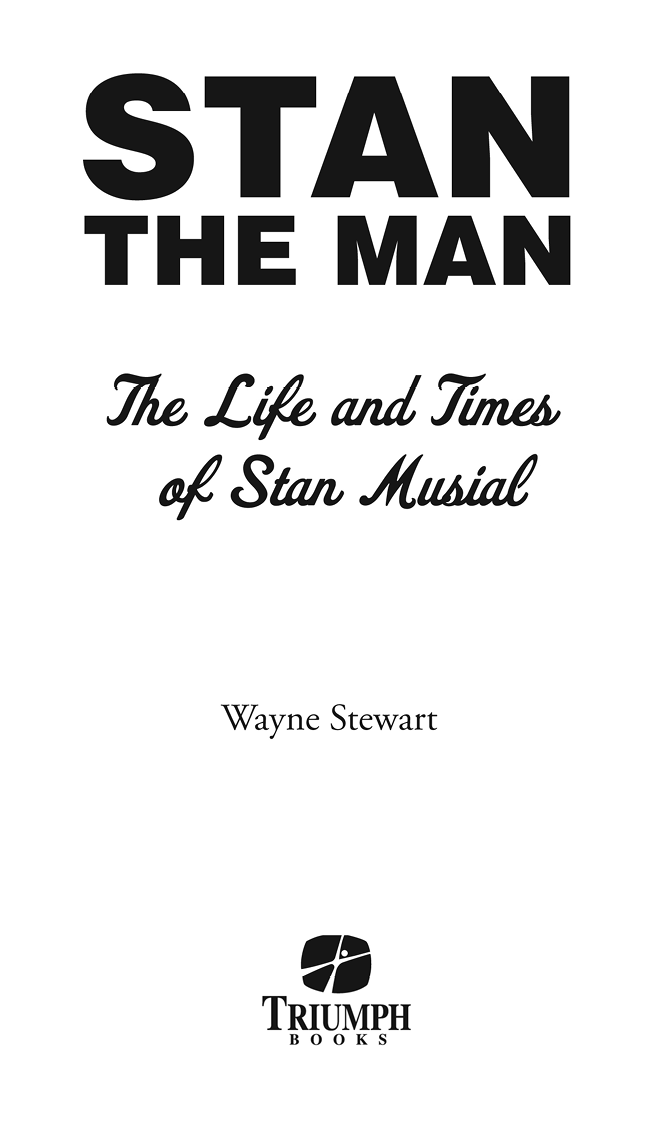
To Nancy, Scott, Sean, Rachel, and Nathan. Also to the memory of my father, O.J. (who taught me to love words) and his brother Dale, who, along with my dad, chased Stan off a sandlot, saying he wasnt good enough to play ball with the big boys. And to my mother, Margaret (Jones) Stewart, who taught me to love books, and to my uncle Bobby Jones, a big Musial fan.
Contents
Acknowledgments
Thanks to the Donora Public Library, especially Beth Vaccaro, Dennis Lomax, Judy Thomas, and Donnis Headley, and to the library staff of Lorain, Ohio, particularly Julie Marchand and Sandee Ruth. Likewise, a big thanks to Brian Charlton and the Donora Historical Society.
Much of the new, fresh material on Musial came from people I interviewed over the past three years, so a huge thank you goes out to those who cooperated. Thanks are also due to several people who contributed their thoughts and memories but, due to space limitations, did not get quoted in the book.
Here, then, in no particular order, is the list of the people I have interviewed and/or those who have helped on this project:
Hank Aaron, Carl Erskine, Joe Cunningham, Dick Groat, Ray Bradley, Carl Warwick, Ed Musial, Steve Russell, Monte Labash, Angela Labash, Nancy Rumora, Joe Barbao Jr., Ken Barbao, Bobby Del Greco, Dale Stewart, Laurel Grimes, Betty Hendrickson, Stan Isaacs, Dr. Louis Ferretti, Ernie Harwell, Emil Badzik, Jeff Francoeur, Art Galiffa, Minor Hawk, Ignatius Hokaj Jr., Dorothy Kovacik, Stu Miller, Charlie Manuel, Solly Hemus, Joe Kostolansky Jr., Emma Jene Lelik, Charlie James, John Lignelli, Earl Gipin, Ted Musial, George Shuba, Bill Virdon, Ross Farmer, Rose Cousino, Paul Zolak, Don DeVore, Bob Skinner, Joe Patch, Larry Ludwig, Marty Marion, Hugh Forsyth, Jean Morton, Paul Barna, Hal Smith, Mark Gorsak, Loretta Manus, Chet Suski, Abe Barczuk, Roy McHugh, Bimbo Cecconi, Richard Bucchianeri, Vance Bunardzya, Frances Delsandro, Helen and Robert Jones, Todd Ririe, Bill and Goldie Rank, Ron Nagy, Bob Friend, Elroy Face, Helen McCulloch, Greg Oslowski, Ed Pado, Dave Sarkus, Ron Necciai, Chuck Smith, Joe Ravasio, Martha Muniz, Alex Grammas, Dr. Charles Stacey, Mark Weinstein, Vernon Law, Jean Pansino, Speer Ruey, Wallace Zielinski, Bill Polachek, Michael E. Kelley, Michael J. Kelley, John Benyo Jr., Bill Oslowski, Chris Ercius Elliott, Jim OBrien, Bobby Bragan, John Kuenster, Bobby Cox, Wally Westlake, Rudy Andabaker, Linda Ruth Tosetti, Casey Blake, Ken Griffey Jr., George F. Will, Dick Pole, Susan Naylor, Jimy Williams, Don Miller, Ulice Payne, Ed P. Sukel, Sally OLeary, Adam Motin, Tom Bast, Jim Collins, and two sources who wish to remain anonymous.
Finally, a big thanks to my wife, Nancy, for proofreading, deftly catching some errors, and making suggestions concerning my manuscript.
Introduction
Stan Musial may be the most well-liked, respected, and venerated superstar in the annals of the game. In 1998 The Sporting News ranked Musial the 10 th -greatest baseball player ever, but the men who topped him statistically trail him in the categories of class and character.
For example, Babe RuthNo. 1 on the listwas far from being the most moral of men. Willie Mays (No. 2), Ty Cobb (No. 3), Ted Williams (No. 8), and Rogers Hornsby (No. 9) were capable, in varying degrees, of surliness and incivility. Cobb, the self-proclaimed snarling wildcat, was guilty of bellicose behavior bordering on the sociopathic.
Musial lacked the volatility and egotism of many superstars. From childhood, he exuded a joie de vivre even while growing up during the Depression. He has maintained that buoyant attitude all through his life.
Musials blend of prowess and personality was such that even Cobb graciously stated, No man has ever been a perfect ballplayer. Stan Musial, however, is the closest thing to perfection in the game today. He glaringly stood out, looming high above the vast majority of his peersa klieg light among 40- and 60-watt bulbs.
Sportswriters arranged for Carl Mose to sculpt a bronze statue of Musial, a man endorsed universally as a great guy. Upon the pedestal was the following inscription, penned by former sportswriter and baseball commissioner Ford Frick:
HERE STANDS BASEBALLS PERFECT WARRIOR.
HERE STANDS BASEBALLS PERFECT KNIGHT.
This man, who came from a modest background, the son of immigrants, rose to become the type of ballplayer and man who not only mingled with presidents but was in demand everywhere. Common men and CEOs alike clamored to meet Musial and shake his hand. Musials office was festooned with pictures of famous men such as Bob Hope, John F. Kennedy, and Lyndon B. Johnson.
Even as he became more urbane, Musials mannerisms remained homey and without affectation. When he spoke, his enthusiasm would bubble over, and he would pepper his responses to others comments with yeah, yeah, yeah. Mon Valley resident Steve Russell noted, Those hands would always be going; hes very animated, and hes always smiling. In every picture of him, he always has a smile on, always has a smile. He even said it, When that cameras going, I smile.
The durable Musial began his baseball career as a pitcher and went on to incredible success as a hitter despite utilizing one of the games most unorthodox stances ever. In his book, The Sporting News Selects Baseballs Greatest Players , Ron Smith states: He had the menacing look of a cobracrouched at the hips, legs close together in the back of the box with right heel elevated, bat cocked straight up, eyes peering over the right shoulder in a hypnotic search for a moving target.
Probably the most famous observation about his stance came from White Sox pitcher Ted Lyons, who commented famously, Musials batting stance looks like a small boy looking around a corner to see if the cops are coming.
Musial was far from being one-dimensional, though, hitting for average and power. Smith also commented, Musial was not a Ruthian-type power hitter, but careless pitchers usually paid for their mistakes.
Longtime Dodgers broadcaster Vin Scully succinctly summed up the Musial magic. He said, How good was Stan Musial? He was good enough to take your breath away.
Despite the litany of praise for his prowess, its been said that his greatest legacy might have been the goodwill he brought to a city and the game in general. His love for baseball was genuine; his rapport with the fans was enduring. Musial was living proof that an unyielding, take-no-prisoners intensity is not necessarily a prerequisite for success. As Stan Isaacs put it, You didnt have to be foaming at the mouth to be a great competitor.
Musial had virtually no ego or any sense of self-importance, rare among the elite in any field. If, as Mark Twain wrote, Work consists of whatever a body is obliged to do. Play consists of whatever a body is not obliged to do, then Musial never felt the onus of working at the big-league level. Writers Lawrence Ritter and Donald Honig assert that He went about his business, day in and day out, drilling line drives, winning ball games, never complaining, always smiling.
George F. Will visited Donora from time to time to see his grandfather, a Lutheran minister in town for some time. Will called Musial an extraordinarily affable man. It was like he was Everyman, except, and this is what you have to keep in mind, no one gets to be that good in athletics by being a normal man. That is, beneath that preternatural affability, and beneath that genuine affection for the fans, there was aflame burning.


